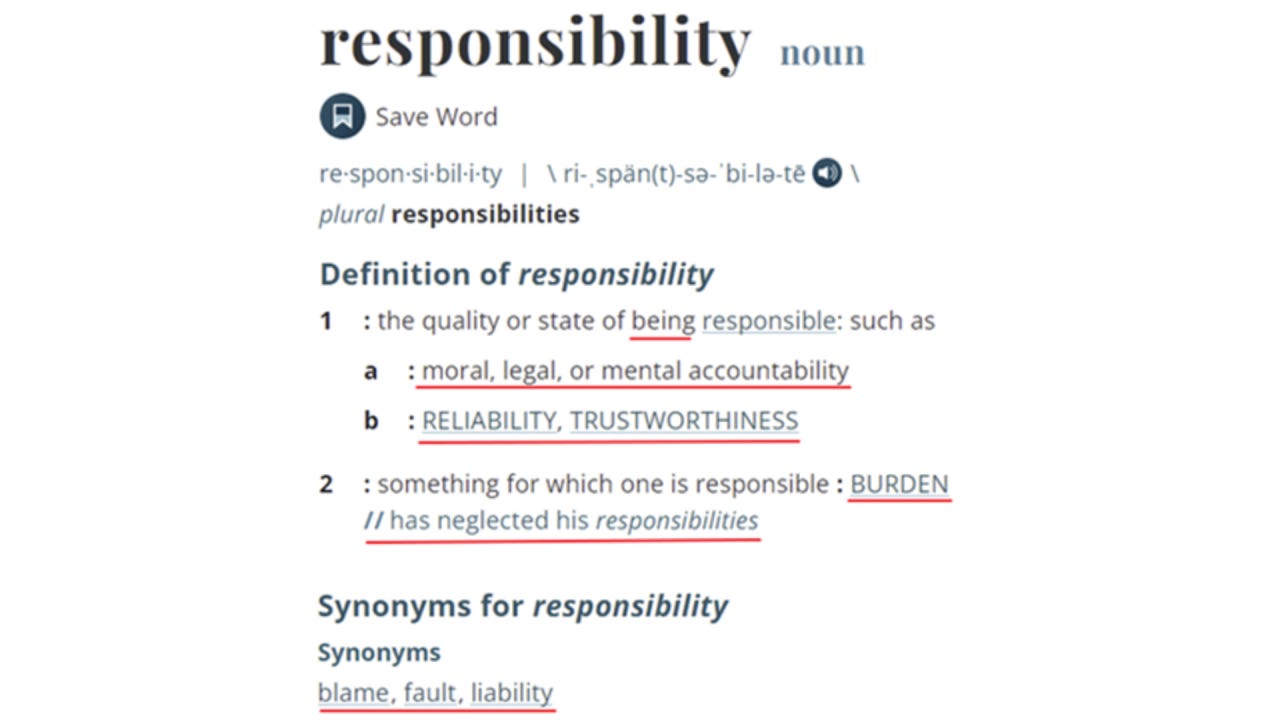Taylor Swift, McDonalds Hot Coffee, Emotional Extortion, Spin, and the Nuclear Verdicts of Modern Times.
I'm convinced the infamous Hot Coffee lawsuit against McDonald's in the 1990s marked a turning point in our society’s mindset, signaling the slow demise of personal responsibility, shame, and accountability. For many, that case opened the door where blame shifted from individual action to the deeper pockets of corporations, all while insurers quietly settled behind the scenes, reinforcing the narrative. My daughter has this song as her ringtone and Taylor Swift might be on to something when she sings, "It's me, hi, I'm the problem, it's me." The reality is that sometimes, no matter how disastrous the outcome, we need to take ownership of our own BS no matter how catastrophic.
But instead of looking inward, we’ve become a culture of finger-pointing, where personal responsibility is long gone, and the concept of facing consequences for our own actions has taken a backseat. The courts, juries, and even insurance companies are no longer rewarding accountability, they’re punishing it. Insurers, eager to avoid prolonged litigation, have historically shown their hand by settling even absurd cases, sending a clear message, accountability doesn’t matter as long as there’s money to be gained.
In this litigious society where facts and evidence take a backseat to emotion and innuendo, we’ve become the anti-heroes of our own stories. And it must be exhausting, as Taylor puts it, "always rooting for the anti-hero." These verdicts come with prices, and the cost is being born not just by companies, but by all of us. This mindset shift, perpetuated by massive settlements and nuclear verdicts, is eroding the foundation of personal responsibility and leaves us all in one huge, expensive mess we all pay for.
The legal system often functions less on logic and reason and more on emotion, with massive financial consequences that are passed right on down the line to everyday Americans. We've entered an era where nuclear verdicts are becoming increasingly common, threatening all industries but especially transportation and manufacturing. This issue goes beyond any one case or company.
Recently a trailer manufacturer was slammed with a staggering $462 million verdict. This case involved a rear-end collision where two individuals tragically lost their lives after striking the rear of a trailer at over 40 mph. The trailer in question was built to meet NHTSA safety standards that specifically required designs to prevent underrides in rear impacts up to 30 mph. Yet, the argument wasn’t about compliance – it was about whether the company could have gone beyond the regulatory requirements.
COMPLIANCE WITH REGS OR LAW DOES NOT MEAN FREE OF EXPOSURE
This is where the real danger lies. Jurors, swayed by emotional arguments, were presented with the idea that the trailer manufacturer “saved” $15 million a year by not installing more expensive DOT bumpers. The plaintiffs argued that stronger impact guards could have saved lives, despite no clear evidence that such a change would have prevented the crash in question. As a result, the jury handed down damages that are frankly mind-boggling. While Missouri law might reduce the punitive damages, it doesn’t change the fact that verdicts like this can devastate businesses and drive up costs for everyone, even you sitting at home about to go to your job as a teacher.
This case is not an isolated incident. The Werner Enterprises case in Texas is another prime example of a company being held responsible for an accident they had little, if any control over. In that case, a Werner driver was not at fault for the crash, yet the company was hit with a nuclear verdict that puzzled everyone who read it. The driver had no involvement in causing the crash, yet Werner was held liable, largely due to the emotional narrative presented to the jury about a policy for trainees and winter conditions.
The emotional extortion of juries and the spin on facts is driving dangerous precedents that affect us all. Bill Kanasky Jr., Ph.D. of Courtroom Sciences Inc., has developed programs specifically to address these runaway verdicts. His work focuses on mitigating the emotional manipulation of jurors and reptilian theory, by focusing on facts, expert testimony, and solid defense strategy. Without these kinds of tactics, businesses are at risk of being railroaded by verdicts based more on emotion than on actual responsibility.
So, what can be done? As motor carriers, manufacturers, and industry professionals, it’s more important than ever to ensure that your compliance programs are airtight. You need to make sure your I’s are dotted and your T’s are crossed because the legal landscape we’re navigating is absolutely wild. Even if you’re operating safely and within all regulations, that doesn’t necessarily protect you from massive verdicts that could sink your business.
The transportation industry is facing increasing pressure from a society that tends to blame first and ask questions later. Remain vigilant, protect your business, and support efforts to challenge verdicts that threaten not only individual companies but the industry as a whole. The cost of this litigious environment is one that we all ultimately bear. Meanwhile, if you need someone to ensure you have the most defensible fleet compliance program, Trucksafe has you covered. Hit us up.


